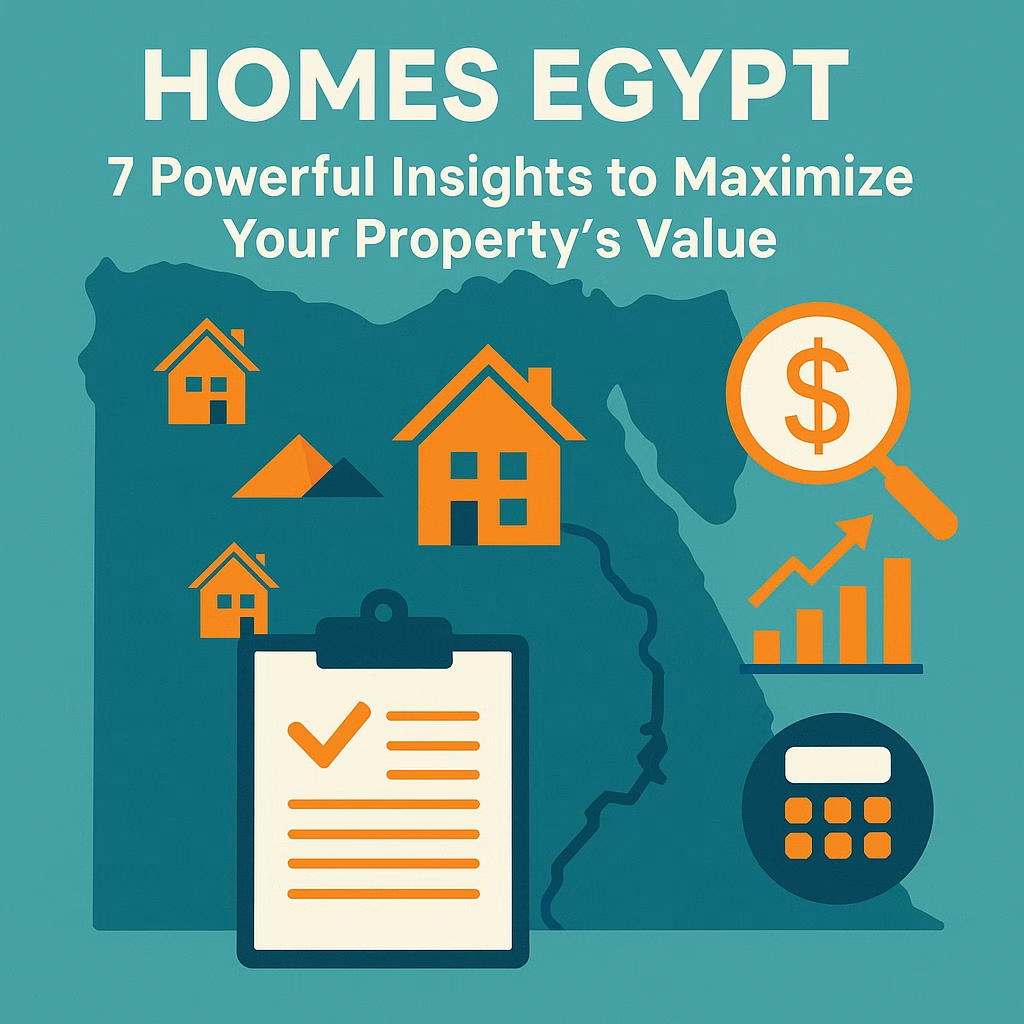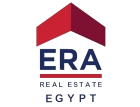Overview of Property Valuation in Egypt
Definition and Significance of Property Valuation
Homes Egypt is your essential roadmap to unlocking true value in the Egyptian real estate market. Imagine stepping into a sunlit apartment in Cairo, knowing you’ve paid exactly what it’s worth—no hidden surprises.
Property valuation in Egypt refers to the process of assessing the worth of a property, whether it’s residential, commercial, or land. Understanding the valuation meaning is crucial for various stakeholders—buyers, sellers, investors, and financial institutions. Accurate valuations offer a clear value proposition, enabling informed transactions and investment decisions. For instance, a couple looking for homes in Cairo may rely on a professional valuation to ensure they’re making a sound financial choice.
Factors Influencing Property Valuation in Egypt
Several factors influence property valuation in Egypt, including:
- Location: Proximity to amenities, schools, and transport links can greatly affect value.
- Economic Conditions: Market fluctuations and inflation rates often dictate property worth.
- Regulatory Framework: Laws and regulations can impact property rights and valuation accuracy.
- Market Trends: Demand and supply dynamics in the homes in Egypt sector also play a critical role.
An understanding of these factors can significantly enhance a buyer’s or investor’s strategy when considering property in this evolving market.

Methods of Property Valuation
Comparative Market Analysis (CMA)
One of the most common methods of property valuation is Comparative Market Analysis (CMA). This technique involves comparing a property to similar homes in Egypt that have recently sold to estimate its market value. For instance, if you’re looking at homes in Cairo, the CMA will focus on properties within the same neighborhood, size, and condition, providing a realistic price range for buyers and sellers.
Income Approach
The Income Approach is another vital method, particularly for investment properties. This method assesses the expected income a property can generate, which is crucial for investors. For example, a rental property’s potential earnings from tenants can significantly influence its valuation, allowing investors to gauge their expected return on investment.
Cost Approach
Lastly, the Cost Approach considers the current cost to replace or reproduce the property, minus depreciation. This method is especially relevant for new developments or custom homes. It involves:
- Estimating construction costs
- Considering land value
- Accounting for depreciation factors
Understanding these valuation methods is essential for navigating the dynamic real estate market in Egypt. Each brings unique insights, enabling buyers and investors to make informed decisions.

Legal Framework for Property Valuation in Egypt
Regulations Governing Property Valuation
The legal framework surrounding property valuation in Egypt is crucial for ensuring accuracy and fairness in real estate transactions. Regulations address various aspects of valuation, including licensing requirements for valuators, adherence to international standards, and ethical practices. For instance, valuators must comply with the Egyptian Valuation Standards, which outline protocols for unbiased evaluations.
Role of Government Agencies in Property Valuation
Government agencies play a pivotal role in maintaining the integrity of property valuations. Key functions include:
- Setting Regulatory Standards: Establishing guidelines that all valuators must follow.
- Monitoring Compliance: Ensuring valuators adhere to standards to foster market confidence.
- Providing Data: Offering databases of property sales and valuations to aid in the valuation process.
A personal experience illustrates this: when a friend was purchasing a home in Egypt, government databases helped clarify pricing trends, enhancing transparency during negotiations. Understanding these legal frameworks empowers both buyers and investors to navigate the real estate landscape confidently.
Challenges and Considerations in Property Valuation
Accuracy of Property Data
One significant challenge in property valuation is ensuring the accuracy of property data. In Egypt, discrepancies in reported values can lead to miscalculations and unfair pricing. Factors contributing to this issue include:
- Incomplete Records: Missing documentation or outdated property information can skew valuations.
- Inconsistent Standards: Variances in data collection methods among valuators further complicate accuracy.
For example, when a relative was evaluating homes in Egypt, they discovered incorrect square footage listings, which greatly impacted the perceived value.
Impact of Economic Conditions
Economic conditions also play a critical role in property valuation. Fluctuations in the market, inflation, and changes in interest rates can all affect property values. A downturn might lead to decreased demand, while a booming economy could drive prices up.
Navigating these challenges requires vigilance and thorough research, ensuring that buyers and investors can make informed decisions in this dynamic market. Understanding these aspects is vital for successful property valuation in Egypt.

Emerging Trends in Property Valuation in Egypt
Technology Adoption in Valuation Practices
One of the most exciting emerging trends in property valuation in Egypt is the increasing adoption of technology. Tools such as Geographic Information Systems (GIS) and automated valuation models are revolutionizing the way properties are assessed. These technologies allow valuators to analyze vast amounts of data quickly and accurately.
For example, a friend in the real estate sector recently used AI-driven software to estimate the value of a property, resulting in significant time savings and improved precision.
Market Dynamics Shaping Valuation Trends
In addition to technological advancements, market dynamics are also evolving. Factors such as:
- Urbanization: As more people flock to cities, demand for homes in Cairo and other urban areas increases, affecting valuations.
- Sustainability: Eco-friendly properties are gaining popularity, often commanding higher values.
Understanding these trends is essential for anyone involved in the valuation business, allowing for a more strategic approach in this ever-changing landscape. Being aware of these shifts can significantly influence investment decisions and overall market strategies in Egypt’s real estate sector.
Recommendations for Improving Property Valuation Practices
Enhancing Data Transparency
To improve property valuation practices in Egypt, enhancing data transparency should be a top priority. Reliable and accessible data can lead to more accurate valuations and greater trust among stakeholders. For instance, implementing centralized databases where all property transactions, market trends, and valuation reports are easily accessible could greatly benefit valuators.
Consider establishing policies that promote:
- Public Access: Ensuring property value data is available to the public.
- Standardized Reporting: Mandating uniform reporting methods among valuators to ease comparisons.
Professional Development in Valuation Industry
Alongside transparency, investing in professional development for valuators is crucial. Continuous education and training can help valuators stay updated on the latest methodologies and technologies.
For example, workshops and seminars focusing on emerging valuation techniques can foster a more skilled workforce. Networking with international organizations can also expose local valuators to best practices from around the globe.
Together, these recommendations can significantly enhance property valuation practices in Egypt, fostering a more robust and credible real estate market.
Case Studies in Property Valuation
Real-life Examples of Property Valuation in Egypt
Examining real-life examples of property valuation in Egypt can provide valuable insights into effective practices. For instance, a well-known real estate firm recently valued a commercial property in Cairo’s bustling downtown area. By utilizing a comparative market analysis combined with the income approach, they concluded that the property was undervalued, leading to a successful negotiation for the seller.
Another example is a residential property in Alexandria, where discrepancies in property size initially led to confusion in valuation. A thorough reassessment helped clarify the true value, preventing potential financial loss for the buyer.
Lessons Learned from Property Valuation Cases
These case studies provide several lessons:
- Importance of Accurate Data: Ensuring precise property dimensions and conditions is essential.
- Utilizing Multiple Valuation Methods: Combining methods can yield more reliable valuations.
- Continued Education: Adapting to market changes is critical for valuators to maintain accuracy.
By applying these lessons, stakeholders in Egypt’s real estate market can enhance their approach to property valuation, promoting better outcomes for buyers and sellers alike.

Conclusion and Future Outlook
Recap of Key Points
As we’ve explored, property valuation in Egypt is influenced by various factors, from economic conditions to technological advancements. Methods like Comparative Market Analysis, the Income Approach, and the Cost Approach provide frameworks for accurate assessments. Moreover, understanding the legal framework and enhancing transparency are pivotal for fostering market trust. Personal anecdotes and case studies show how these elements come together to impact real estate transactions.
Predictions for the Future of Property Valuation in Egypt
Looking ahead, the future of property valuation in Egypt appears optimistic. Key predictions include:
- Increased Technology Integration: An uptick in AI and big data analytics will streamline valuation processes.
- Stronger Regulatory Frameworks: Enhanced governance will improve data transparency and ethical practices.
- Sustainability Influence: Eco-friendly properties will likely command higher valuations due to rising consumer preferences.
These trends suggest a more efficient, transparent, and tech-savvy valuation landscape, ultimately benefiting stakeholders across the real estate market. Embracing these changes can lead to better investment decisions and a more resilient property market in Egypt.
Further Reading
Book Your call with ERA’s Expert Now!
Q&A Section
Q: What factors influence property valuation in Egypt?
A1: Location (proximity to schools, transport, amenities), current economic conditions (inflation, market demand), legal and regulatory framework, and neighborhood trends all play pivotal roles in determining a property’s worth.
Q: What are the main methods of property valuation?
A2:
Comparative Market Analysis (CMA): Compares similar properties recently sold in the area.
Income Approach: Calculates value based on potential rental or business income.
Cost Approach: Considers replacement cost minus depreciation.
Q: How long is a property valuation valid in Egypt?
A3: A professional valuation typically remains valid for five years, after which it must be reassessed to account for market changes and economic shifts.
Q: Do I need a licensed valuator for my property?
A4: Yes. Egyptian law requires that all official valuations be performed by valuators licensed under the Egyptian Valuation Standards to ensure accuracy and legal compliance.
Q: Can foreigners obtain a property valuation in Egypt?
A5: Absolutely. Foreign buyers follow the same valuation process and must comply with local regulations; no residency or special visa is needed for valuation purposes.
Q: What fees are associated with property valuation?
A6: Valuation fees vary by property type and size but generally include a fixed base rate plus a percentage of the property’s assessed value. Additional charges may apply for complex reports or expedited service.
Q: How can I dispute a low property valuation?
A7: You can request a secondary valuation from another licensed valuator or appeal through the Egyptian Tax Authority’s review board, providing supporting data such as comparable sales and property documentation.
Q: Where can I find official property sales data in Egypt?
A8: The Egyptian Tax Authority and the Ministry of Housing’s public databases publish recent transaction records. Many real estate portals also compile this data for easier buyer/investor access.
